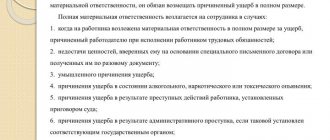New edition of Art. 40 of the Criminal Code of the Russian Federation
1. It is not a crime to cause harm to interests protected by criminal law as a result of physical coercion, if as a result of such coercion the person could not control his actions (inaction).
2. The issue of criminal liability for causing harm to interests protected by criminal law as a result of mental coercion, as well as as a result of physical coercion, as a result of which the person retained the ability to control his actions, is resolved taking into account the provisions of Article 39 of this Code.
Characteristics of physical and mental coercion
In the science of criminal law, there is a case when a citizen, committing a crime under duress, ultimately is not the subject of a crime and his actions are not criminal.
In theory it sounds very encouraging, but harsh practice, in the role of which the court acts at its discretion, objectively and comprehensively.
The implementation of these principles comes down to the fact that the judge is forced to examine the facts and evidence presented by the investigation and the defense.
Indeed, if it is established that a citizen committed a crime under physical or mental coercion, then he does not commit a crime, since he is under the influence of the attacker - the real subject of the crime. But there is a fine line between participation under duress and complicity in a crime.
Another comment on Art. 40 of the Criminal Code of the Russian Federation
1. The criminal law distinguishes, firstly, irresistible physical coercion (Part 1) and, secondly, surmountable physical coercion and mental coercion (Part 2).
2. Irresistible physical coercion, i.e. the present and real inability of a person to direct his actions due to the complete suppression of his will excludes the criminal liability of such a person due to the fact that the act committed by him does not correspond to his will. In this case, the person is not able to resist coercion (he is tied up, locked up, tortured, etc.).
The coercer is subject to criminal liability for the crime committed as a mediocre performer (Part 2 of Article 33 of the Criminal Code of the Russian Federation).
3. Overcome physical coercion and mental coercion exclude the criminal liability of a person if, firstly, the coercion was present and real and, secondly, actions under duress comply with the conditions of legality of extreme necessity (Article 39 of the Criminal Code of the Russian Federation), in particular, the condition proportionality of actions in a state of extreme necessity.
Types of physical and mental coercion
The offender can influence the victim in various ways. If this is a physical impact, then it can be expressed in beatings, mutilations, rape, and causing the death of close relatives.
It is also customary to distinguish between irresistible coercion by force, when a person is completely deprived of the opportunity to realize what is happening and surmountable coercion, when the victim can choose what to do in a given situation.
Mental coercion is often associated with intimidation, threats of violence, harm to health, and death. All this is aimed at the consciousness and will of the person, with the goal of breaking him and forcing him to commit an illegal act.
We recommend! Causing harm to health of moderate severity - liability and punishment under Art. 112, 113, 114 of the Criminal Code of the Russian Federation, as well as compensation for moral damage to health
A person develops fear and apprehension for himself and his loved ones, as a result of which he commits a crime. But unlike physical coercion, here there is the possibility of choosing behavior, that is, surmountable coercion.
A very common case of coercion is the situation with officials who, under the threat of reprisal or harm to the life and health of loved ones, commit a crime: make unlawful decisions, influence subordinates, appropriate funds to which they have access, provide access to citizen data bases, and other cases .
Judicial practice: sentences and punishment under Art. 40 of the Criminal Code of the Russian Federation
- Resolution of the Plenum of the Supreme Court of the Russian Federation dated... PLENARY OF THE SUPREME COURT OF THE RUSSIAN FEDERATION DECISION dated December 27, 2002 N 29 ON JUDICIAL PRACTICE IN CASES OF THEFT,...
- Decision of the Supreme Court: Determination N 203-APU17-21... THE SUPREME COURT OF THE RUSSIAN FEDERATION Case No. 203-APU17-21 APPEAL DECISION Moscow August 31, 2022 Judicial Collegium for Military Personnel of the Supreme...
- Ruling of the ECtHR dated 02/14/2017 EUROPEAN COURT OF HUMAN RIGHTS THIRD SECTION CASE “MASLOVA VS. RUSSIAN FEDERATION” (Complaint No. 15980/12) JUDGMENT…
- Resolution of the Plenum of the Supreme Court of the Russian Federation dated... PLENARY OF THE SUPREME COURT OF THE RUSSIAN FEDERATION DECISION of November 15, 2016 N 48 ON THE PRACTICE OF APPLICATION BY COURTS OF LEGISLATION GOVERNING FEATURES...
- Ruling of the Constitutional Court of the Russian Federation dated March 13, 2018 N 578-O THE CONSTITUTIONAL COURT OF THE RUSSIAN FEDERATION RULING dated March 13, 2018 N 578-O ON THE REFUSAL TO ACCEPT A CITIZEN’S COMPLAINT FOR CONSIDERATION...
- Decision of the Supreme Court: Determination No. 38-АПУ17-2 dated... THE SUPREME COURT OF THE RUSSIAN FEDERATION No. 38-АПУ17-2 APPEAL DECISION Moscow March 1, 2022 Judicial Collegium for Criminal Cases of the Supreme Court...
- Decision of the Supreme Court: Determination No. 72-АПУ17-1 dated... THE SUPREME COURT OF THE RUSSIAN FEDERATION Case No. 72-АПУ17-1 APPEAL DECISION Moscow February 2, 2022 Judicial Collegium for Criminal Cases...
- Decision of the Supreme Court: Determination No. 66-АПУ17-6 from... THE SUPREME COURT OF THE RUSSIAN FEDERATION Case No. 66-АПУ17-б APPEAL DECISION Moscow City June 14, 2022 Judicial Collegium for Criminal Cases of the Supreme...
- Resolution of the Presidium of the Supreme Court of the Russian Federation dated... PRESIDIUM OF THE SUPREME COURT OF THE RUSSIAN FEDERATION DECISION dated December 5, 2018 N 126-P18 ON RESUMING PROCEEDINGS IN THE CASE DUE TO NEW...
- Resolution of the Plenum of the Supreme Court of the Russian Federation dated... PLENAUM OF THE SUPREME COURT OF THE RUSSIAN FEDERATION DECISION dated December 17, 2022 N 43 ON SOME ISSUES OF JUDICIAL PRACTICE IN CASES...
Signs of physical and mental coercion
The first sign will be the presence of coercion itself, that is, an action forcing one to act in a certain way in order to avoid threats and reprisals against oneself or loved ones.
That is, in court, a citizen must present an indisputable fact that he acted unconsciously, under the influence of another person.
The second sign is the inability of the victim to realize what is happening, caused by injuries or direct threats and intimidation. Depending on the psychology of the individual, someone is susceptible to more or less influence and intimidation.
The third sign is that a person commits an unlawful and socially dangerous act.
The fourth sign is proportionality, which is similar to extreme necessity, that is, the harm caused must be less than that prevented.
For example, he committed theft or robbery in order to save the life or health of close relatives.
Symptoms of Domestic Violence
The main reasons to believe that the chosen one is a tyrant are:
- a person tries to make another financially dependent;
- criticism of taste, banter;
- instilling a persistent feeling of guilt;
- humiliation of dignity, “indicating” one’s place, negative attitude towards loved ones, all kinds of criticism of friends;
- aggressive jealousy;
- furious attacks from success;
- taking out a bad mood on a person;
- inattentive attitude of the partner in the sexual area.
If this situation is very familiar, then we can say with certainty that there is domestic violence in the family.
Numerous women accept the role of victim. It is also worth showing that in a woman’s situation this is always an incomprehensible, but conscious choice. In such a family, the child always suffers. Most people believe that violence in the home does not constitute any crime, but think that it is an ordinary conflict in everyday life. Perhaps it is precisely because of this that this is not the first time that it has been proposed to decriminalize such an offense.
In fact, this is not the case. According to statistics from the Ministry of Internal Affairs of the Russian Federation, approximately 80-85% of fights and other occurrences of violent relationships occur specifically in the family. As a result, violence in the home is quite common and very complex. Especially when it is carried out in relation to children. And often there is no liability for simple domestic violence.
In practical terms, administrative appeals to the police station are not so common. Especially if domestic violence is psychological in nature. This form is the heaviest.
Situations of psychological pressure oblige you not to go directly to law enforcement agencies, but to carry out a clear algorithm of actions. It is best to go to court. Often, if there is irrefutable evidence, for example, a report from a hospital, victims go directly to court. This is the right decision. It will speed up the process of punishing the rapist.
Often domestic violence is assessed as a domestic dispute. Or it is not considered at all in court and is not subject to comment. Exceptions include strong consequences for committing violence.
Lawyer's comments to Art. 131 of the Criminal Code of the Russian Federation
The crimes provided for by paragraph “b” of part four of this article, as well as paragraph “b” of part four of Article 132 of this Code, also include acts that fall under the elements of crimes provided for by parts three to five of Article 134 of the Criminal Code of the Russian Federation and parts two to four of articles 135 of this Code, committed against a person under twelve years of age, since such a person, due to his age, is in a helpless state, that is, cannot understand the nature and significance of the actions performed on him. Commentary to Art. 131 of the Criminal Code of the Russian Federation 1. According to Part 1 of Art. 22 of the Constitution: everyone has the right to freedom and personal security. The problem of eliminating violence against women, including in the sphere of sexual relations, is given attention in the UN General Assembly Resolutions 61/143 of December 19, 2006, 62/133 of December 18, 2007 “On intensifying efforts to eradicate all forms of violence against women” and 62/134 of December 18, 2007 “On the eradication of rape and other forms of sexual violence in all their manifestations, including during conflicts and related situations.” The Declaration of the Rights of the Child of November 20, 1959 and the Convention on the Rights of the Child of November 20, 1989 are dedicated to the protection of children, including from all forms of sexual exploitation and sexual abuse. International protection of human rights and freedoms: Coll. doc. M.: Legal literature, 1990. P. 385 - 388. Collection of international treaties of the USSR. 1993. Vol. XLVI.
Object of crime
The main object of the crime is, in the case of rape of an adult (adult woman), her sexual freedom (a woman’s right to make an independent decision about engaging in sexual intercourse with a man, about choosing a sexual partner, forms, without physical or mental coercion), and in case of rape of a minor, minor or who was in a helpless state - sexual integrity (protection from violent sexual assault). At the same time, a violation of sexual integrity always means a violation of sexual freedom as a component. An additional object is the health of the victim, her honor and dignity, and in the case of rape of minors or minors - their normal physical, mental, moral, and sexual development.
Do you need the help of a lawyer under Article 131 of the Criminal Code of the Russian Federation?
Sign up for a free consultation with a criminal lawyer
+7
Definition of the injured party
The victim of rape can only be a female person. For criminal prosecution, the previously established relationship between the victim and the perpetrator or the previous behavior of the victim (being in a registered or civil marriage, prostitution, immoral behavior, etc.) does not matter.
The objective side of rape
The objective side of rape is complex, structural, and consists of mandatory actions:
1) sexual intercourse
2) violence or the threat of its use or taking advantage of the helpless state of the victim.
Attempted rape
The absence of one of the specified actions of the objective party means the absence of rape, or if there are grounds for this, the person’s actions can be qualified under Art. Art. 133 or 134 of the Criminal Code (see commentary to them). If only violence is used or the threat of its use is made for the purpose of committing sexual intercourse against the will of a woman, but there was no sexual intercourse itself, then attempted rape occurs.
Difference from sexual assault
The term “sexual intercourse” specified in the law is not legal, but medical, as a gender ratio, understood in sexology only as a heterosexual, physiological act aimed at procreation and consisting of the insertion of the male penis into a woman’s vagina. Other violent acts of a sexual nature cannot be considered rape and are qualified under Art. 132 of the Criminal Code. If the perpetrator commits rape of the victim and in relation to her acts of a sexual nature, then the act constitutes a set of crimes and is qualified under the commented article and Art. 132 CC. ——————————— BVS of the Russian Federation. 2003. N 3. S.
Misrepresentation and complete rape
Actions not specified in the law, for example, a person committing sexual intercourse with a woman by deception, for example, promises to marry, present any material benefits or help get rid of debts in the future, etc., cannot be considered as rape. However, it is not excluded that deception on the part of the perpetrator is recognized as a fact of rape, when in this way the victim is misled regarding the actual circumstances. For example, a woman is deceived in identity by mistaking the guilty person for another twin brother with whom she wanted to have sexual intercourse and believed that she was doing it with him. Such deception can be equated to the helpless state of a woman, since she is deprived of the ability to resist. Rape should be considered completed from the moment the sexual intercourse begins, regardless of its completion and the resulting consequences (clause 5 of the Resolution of the Plenum of the Armed Forces of the Russian Federation dated June 15, 2004 N 11).
Use of violence
The use of violence means physical violence in the form of beatings or the commission of violent acts that cause physical pain (for example, tying up, seizing, holding, etc.), mild or moderate harm to health, and additional qualifications under articles on crimes against the person do not required (see paragraph 15 of the Resolution of the Plenum of the Armed Forces of the Russian Federation dated June 15, 2004 N 11).
Threat of violence
The threat of violence refers to such actions of the perpetrator that indicate his intention to immediately use the above-mentioned physical violence and are perceived by the victim as real, regardless of the person’s intention to actually carry out such a threat. Such a threat can be expressed in words, gestures, and actions. If the threat is of a future nature, then it cannot be considered as a threat of violence against the victim, since in this case the victim has a real opportunity to seek help.
The threat of damage or destruction of property, dissemination of information disgracing the victim, as well as forcing a woman to have sexual intercourse is not considered as a sign of the objective side, since it is not associated with the possible use of physical violence, but only represents a certain pressure on the psyche of the victim in order to induce sexual intercourse . Physical violence or the threat of its use can occur in relation not only to the victim, but also to other persons, who may be her relatives, loved ones, or other persons whose fate is not indifferent to her, for whose sake the woman is forced to agree to sexual intercourse, for example, a student school, kindergarten student, ward, etc.
Intentional infliction of grievous harm to the victim's health
In case of intentional infliction of grievous harm to the health of the victim during rape, the actions of the guilty person are qualified according to the totality of the commented article with Art. 111 of the Criminal Code. Careless infliction of such harm to the victim’s health excludes the specified totality. If the intentional infliction of grievous bodily harm negligently resulted in the death of the victim, then in the absence of other qualifying features, rape is qualified under the combination of Part 1 of the commented article and Part 4 of Art. 111 of the Criminal Code of the Russian Federation (see paragraph 15 of the Resolution of the Plenum of the Armed Forces of the Russian Federation dated June 15, 2004 N 11). If during rape there was a threat of murder or causing grievous harm to health, then the actions of the guilty person are qualified under Part 2 of the commented article.
On the pages of our website we provide complete and universal instructions on the sequence of actions in case of violation of your rights. However, only a few can independently and fully cope with the task of protection. The slightest errors in the procedure can lead to irreversible consequences that will be impossible to correct. The MIP Legal Group includes qualified, experienced lawyers in all areas of law who will help resolve any issues. You can always use the services of a criminal lawyer and be confident in the result.










